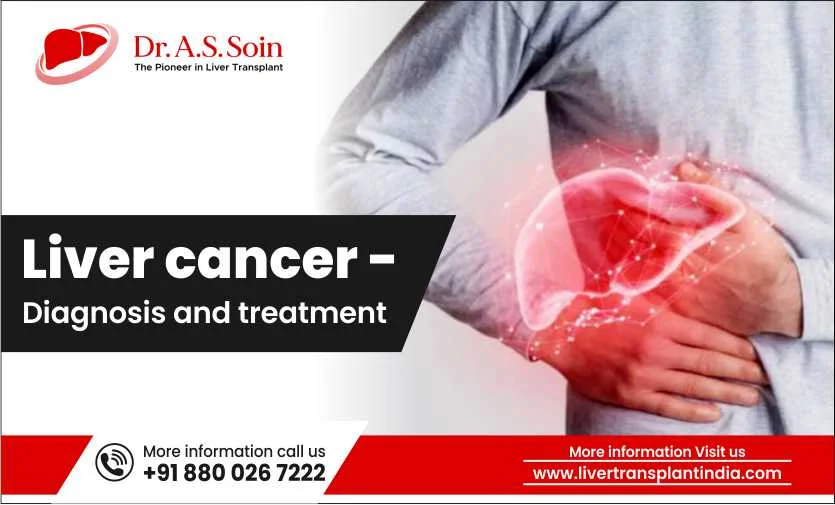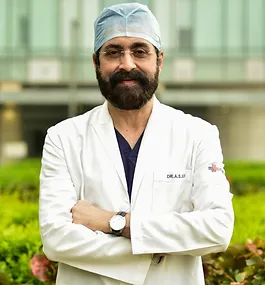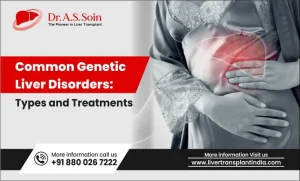Liver cancer is one of the most challenging illnesses to diagnose and treat, but advancements in medical science have significantly improved outcomes for patients. Understanding the liver cancer process—from diagnosis to treatment—is crucial for making informed decisions. Liver Transplant India, under the guidance of Dr. A.S. Soin, provides expert care in Delhi NCR, offering effective management and recovery solutions for those in need.
Table of Contents
ToggleAbout the Liver
The liver, the body’s largest organ, is vital for digestion, detoxification, and metabolic processes. It performs several essential functions, including:
- Filtering and purifying blood from the intestines.
- Storing and metabolizing nutrients absorbed from food.
- Converting food into compounds for energy and tissue production.
- Producing bile for fat digestion.
- Synthesizing chemicals needed for blood clotting.
Given its importance, any liver dysfunction, including cancer, can severely impact overall health.
What is Liver Cancer?
Liver cancer occurs when liver cells grow uncontrollably, forming tumors. It is often linked to chronic liver diseases such as cirrhosis, hepatitis, or obesity. Liver cancer is classified into two primary types:
- Primary Liver Cancer: Includes Hepatocellular Carcinoma (HCC), which begins in liver cells.
- Secondary Liver Cancer: Cancer originating in another part of the body that spreads to the liver.
Early detection is critical but challenging due to subtle or absent symptoms in initial stages. Regular screenings are vital for high-risk individuals.
Symptoms of Liver Cancer
Early symptoms are often nonspecific and include:
- Fatigue and appetite loss.
- Mild abdominal discomfort.
Advanced symptoms may include:
- Persistent upper abdominal pain.
- Unexplained weight loss.
- Jaundice (yellowing of the skin or eyes).
- Abdominal or leg swelling.
Consult a healthcare provider for accurate diagnosis and appropriate management if these symptoms arise.
Diagnosis of Liver Cancer
If liver cancer is suspected, doctors may recommend the following diagnostic tests:
- Blood Tests: Assess liver function and detect tumor markers.
- Ultrasound: Visualizes liver structure and detects tumors.
- CT Scan: Provides detailed imaging to assess tumor size and location.
- MRI: Creates high-resolution images for better tumor evaluation.
- Angiogram: Examines liver blood vessels for abnormalities.
- Biopsy: Confirms diagnosis by analyzing liver tissue for cancer cells.
Treatment Options
The choice of treatment depends on factors like the cancer stage, liver function, and overall patient health.
1. Surgical Treatments
- Liver Resection: Removes the cancer-affected portion of the liver; suitable for early-stage cancer.
- Liver Transplantation: Replaces the diseased liver with a healthy donor organ, often a curative option for patients with underlying liver disease or advanced cancer.
2. Localized Therapies
- Radiofrequency Ablation (RFA): Destroys cancer cells using heat.
- Chemoembolization: Delivers chemotherapy directly to the tumor while cutting off its blood supply.
3. Systemic Therapies
- Targeted Therapy: Focuses on specific cancer pathways to minimize harm to healthy cells.
- Immunotherapy: Activates the immune system to target and destroy cancer cells.
Advances in Liver Cancer Treatment
Recent innovations include:
- Robotic Surgery: Enhances precision and reduces recovery time.
- Genomic Medicine: Personalizes treatment based on the tumor’s genetic profile.
- Combination Therapies: Promising clinical trials involving immunotherapy and other treatments.
Post-Treatment Care and Recovery
Recovery focuses on improving quality of life through:
- Nutrition: A balanced diet rich in antioxidants and low in fats supports liver health.
- Regular Follow-ups: Monitors for recurrence or progression.
- Emotional Support: Counseling and support groups help patients cope with the psychological impact of cancer.
Preventing Liver Cancer
While prevention isn’t always possible, these steps can reduce risk:
- Maintain a healthy weight and avoid obesity.
- Get vaccinated against hepatitis B and avoid hepatitis C exposure.
- Limit alcohol consumption and avoid behaviors leading to cirrhosis.
- Regular screenings for individuals with risk factors like diabetes, obesity, or chronic liver disease.
Why Choose Liver Transplant India?
Dr. A.S. Soin, a renowned liver cancer specialist, leads the team at Liver Transplant India in Delhi NCR. The center offers cutting-edge diagnostic tools, advanced treatments, and compassionate care, providing patients with renewed hope and improved outcomes.
Final Thoughts
Liver cancer, though challenging, can be managed with early detection, expert care, and modern treatment approaches. Dr. A.S. Soin and his team at Liver Transplant India are dedicated to providing comprehensive care tailored to each patient’s needs.
For expert consultation or a second opinion, contact Liver Transplant India today. Begin your journey toward health and recovery with trusted professionals by your side.








